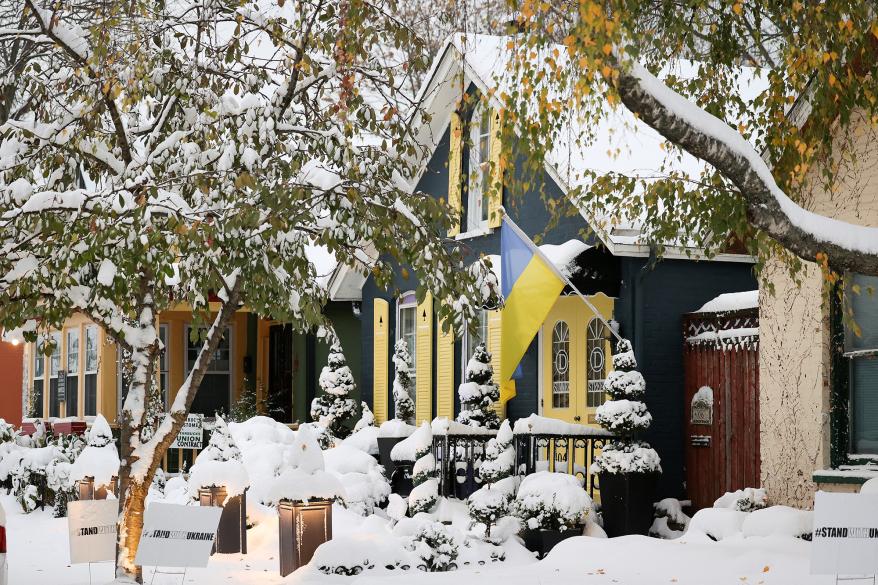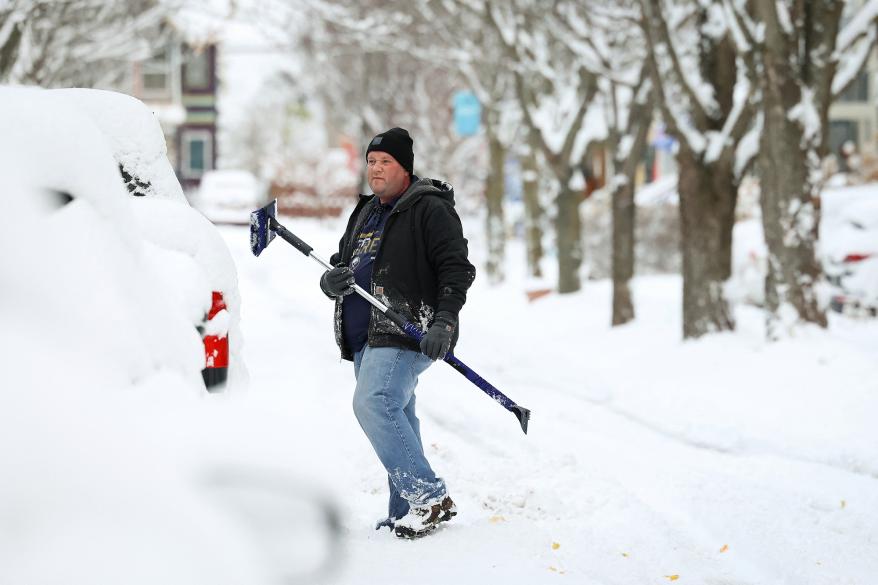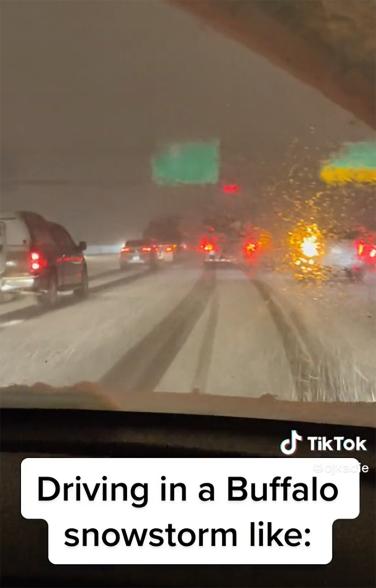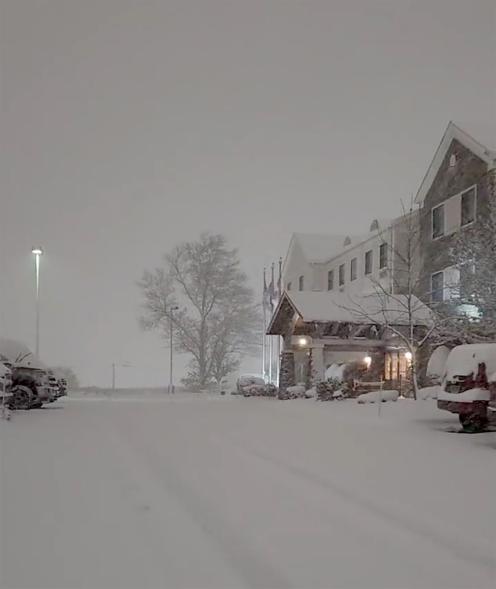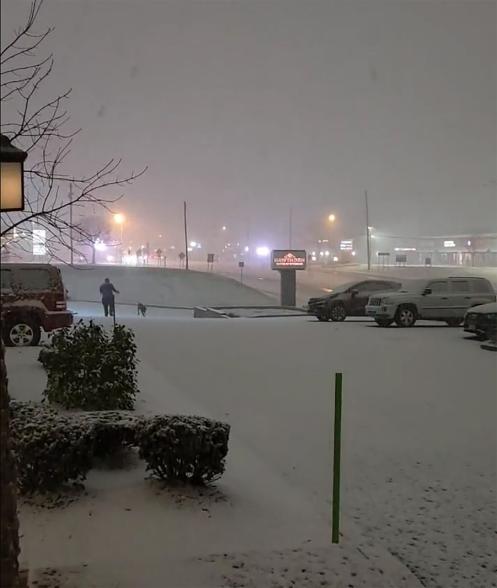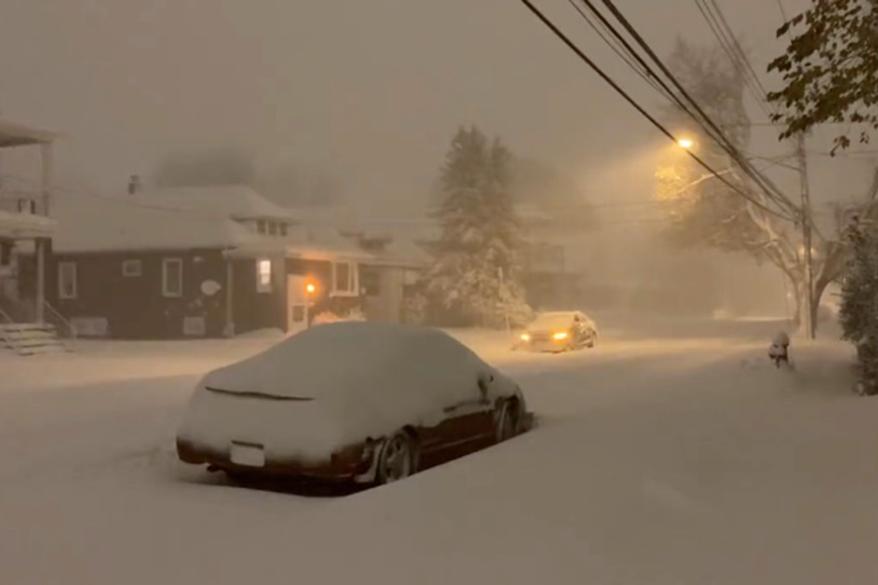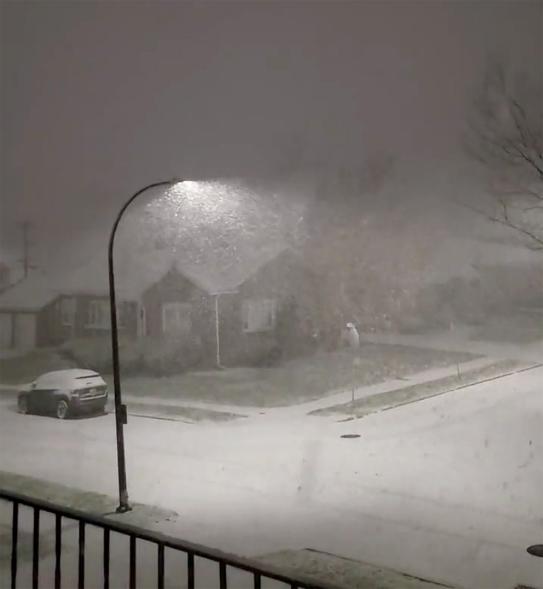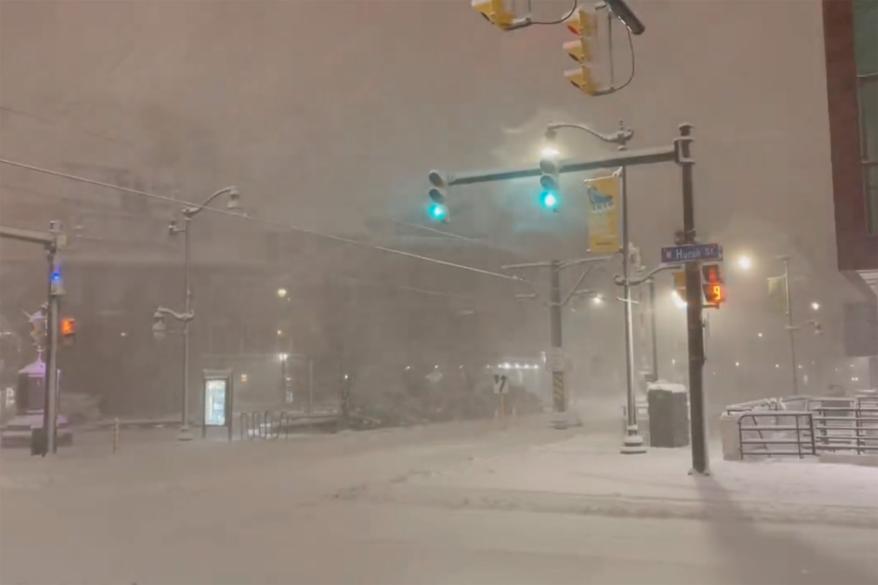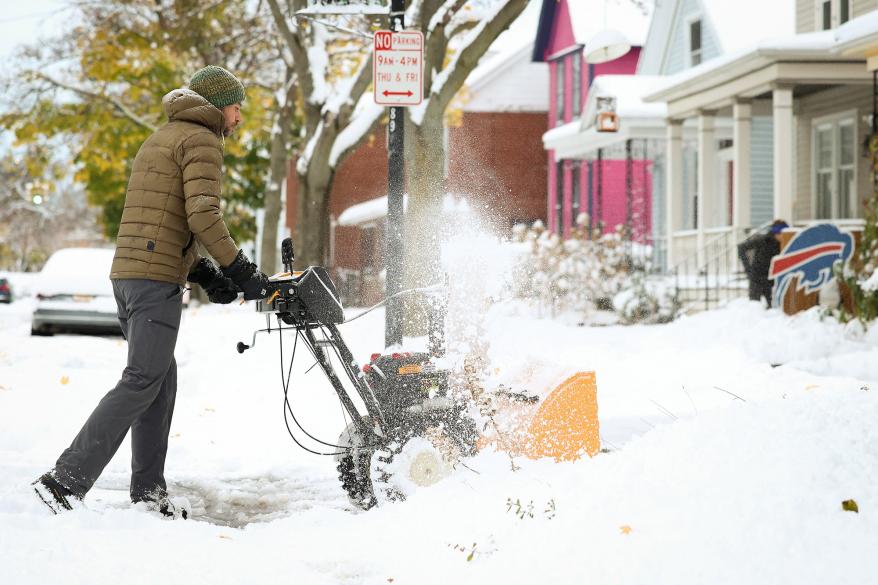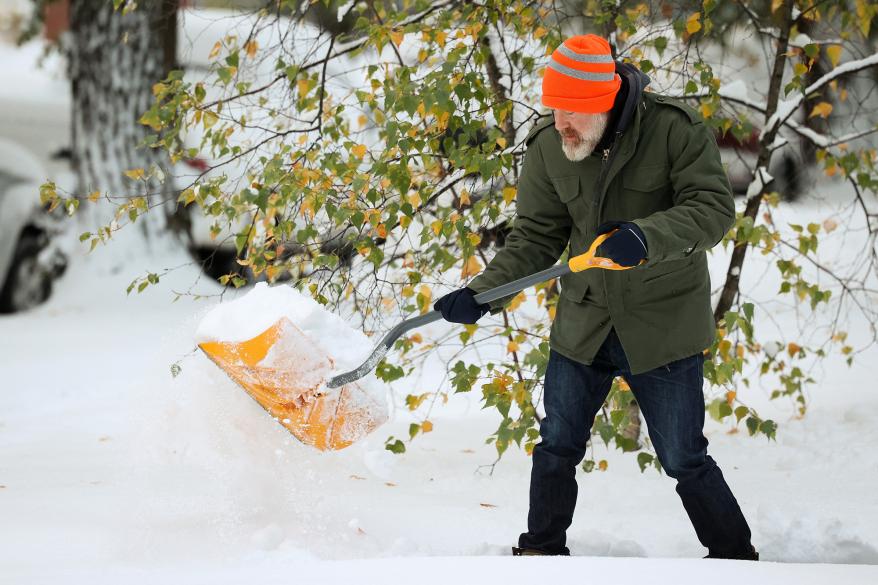‘Thundersnow’ damage to continue Friday
Wild footage of the “thundersnow” storm pummeling Buffalo captured a vivid lightning strike on a residential street buried in snow, as historic amounts of frozen precipitation are expected to wallop the upstate region through Sunday.
The brief but eerie footage was shared on Twitter just before midnight Thursday by meteorologist Dave Vogan.
“THUNDERSNOW IN SOUTH BUFFALO!! SOUNDS LIKE A WHIP!” Vogan wrote.
Vogan’s video comes amid new forecasts that show the aggressive storm will continue through Friday and into Saturday.
The National Weather Service said the conditions could dump “historic snowfall exceeding 4 feet” in the Buffalo area.
In certain regions, such as east of Lakes Erie and Ontario, there may be snowfall at rates of more than 3 inches per hour, coupled with occasional jolts of lightning, the agency said.
A few upstate communities have already experienced over 2 feet of snow “with plenty more on the way,” Christopher Tate of FOX Weather told The Post Friday morning. Eden, New York, came in with 25 inches before 9 a.m., with Hamburg and Seneca not far behind.
“We’re seeing an ongoing, potentially historic lake effect snow event still unfolding,” Tate said.
Lake effect snow occurs cold temperatures develop over warmer lakes, Tate explained. In this case, the air in northern New York is chilly while Lakes Erie and Ontario “are still in the 40s and 50s.”
“Warm air tends to rise through the atmosphere,” Tate said. “We’ve got wind pushing that rising air towards the east, causing those clouds to push towards Buffalo. In 200 miles, they have time to rise and accumulate moisture.”
Thundersnow, on the other hand, is an even less common phenomenon.
“It’s pretty rare to get thundersnow– thunder when it’s snowing– because you have to have enough instability in the atmosphere to have thunder in the first place, which is hard to do with winter systems,” Tate said.
New York Gov. Kathy Hochul previously declared a state of emergency on Thursday for 11 counties around her hometown, calling the storm a “major, major” event.
“That level of snow coming down with that intensity is what creates the dangerousness, the lack of ability to see on the roads,” she said. “When it’s coming down at that rate, it is almost impossible to clear the road to make it safe to travel. It will not be safe for a considerable amount of time for motorists to go back on the roads.”
Commercial traffic on parts of the New York State Thruway was banned beginning at 4 p.m. Thursday, officials said.
As of Friday morning, 6 million people from New York to Wisconsin, including parts of Michigan’s Upper and Lower Peninsula, remain under snow alerts, CNN reported.
Read the full article Here


